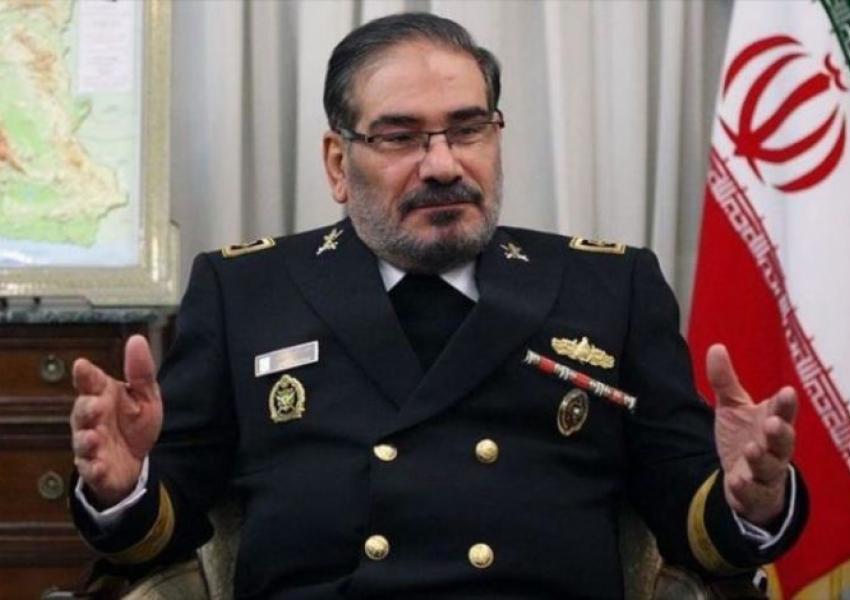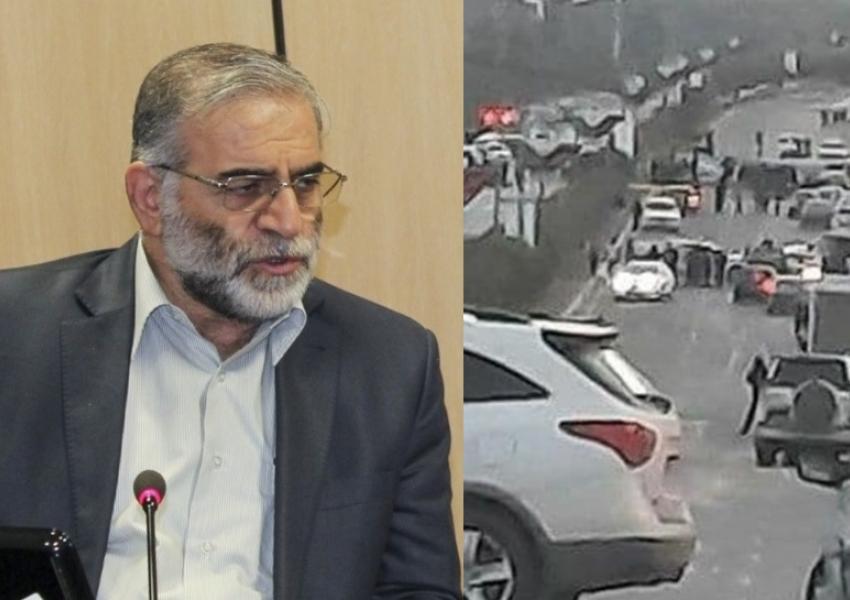
Top Security Official Says Iran Had Been Aware Of Plot To Kill Nuclear Scientist
Ali Shamkhani, Iran’s top security official, said on Monday that Iranian security forces had been aware of a plot to kill nuclear scientist Mohsen Fakhrizadeh at the location of Friday’s attack but that the “very complex” plot had succeeded because the killers used “electronic equipment” and were not physically present.
Shamkhani, Secretary of Iran’s Supreme National Security Council (SNSC), was speaking in an interview on the sidelines of Fakhrizadeh'’s funeral in an interview with the Young Journalists Club (YJC), a news agency affiliated to the state-run broadcaster. Shamkhani said Iran had “some clues” about the perpetrators.
Shamkhani insisted that “for 20 years the enemy was after his [Fakhrizadeh’s] martyrdom, but until now they had failed. He added, “Our intelligence agencies had accurately predicted the plot and its location, but…after 20 years unfortunately the necessary seriousness” was absent and this time “they succeeded”.
Shamkhani did not elaborate why intelligence services failed to protect Fakhrizadeh if they knew about the plot and its location. His only explanation was that the attackers “used a totally new specialized style and unfortunately they succeeded.”
On Sunday, Fars News agency, which is affiliated to the Revolutionary Guards (IRGC), claimed that a remotely controlled machine-gun had been used to assassinate Fakhrizadeh on a boulevard in the resort town of Absard, in Damavand county, east of Tehran.
According to Fars, bullets from the automatic weapon hidden in a small blue Nissan van parked 150 meters away (about 165 yards) hit Fakhrizadeh when he stepped out of his car, thinking there was a problem with the vehicle, after he heard the noise of bullets that had already hit the vehicle. Fars also said Fakhrizadeh’s bullet-proof vehicle was accompanied by three other vehicles with bodyguards.

There have been at least three other accounts of the incident, including one by a documentary filmmaker with ties to IRGC, Javad Mogouei, who in an Instagram post accused the Ministry of Intelligence of harboring “infiltrators” who had contributed to Fakhrizadeh’s assassination. Without explaining his sources, Mogouei claimed that the killing was carried out by a large hit squad.
Several state officials as well as media observers have described the incident as a major failure of intelligence bodies and urged the purging of “infiltrators.” While some have criticized the inadequacy of protection for Fakhrizadeh, Brigadier General Hossein Dehghan, a military adviser to Supreme Leader Ali Khamenei, told state television on Saturday that Fakhrizadeh had enough security protection and had used “suitable vehicles.”
The Ministry of Intelligence and IRGC Intelligence, which have sometimes behaved as rivals, both include counter-espionage organizations but while the Intelligence Ministry is part of the presidential administration and broadly accountable to the Parliament, IRGC Intelligence is accountable only to the military and ultimately to Khamenei as Commander-in-Chief of the armed forces.
On June 19, 2018 the Commander of IRGC Protection Guard, which is formally separate from IRGC intelligence, Brigadier General Ali Nasiri told the YJC that the Protection Guard was responsible for protecting nuclear scientists, visiting foreign dignitaries, and some officials. In other cases, he said, the Protection Unit of the Law Enforcement Force (Police) took the responsibility.
Fakhrizadeh was laid to rest at Emamzadeh Saleh cemetery, north Tehran, Monday after a funeral ceremony at the Ministry of Defense attended by the IRGC Commander-in-Chief Major-General Hossein Salami and other high-ranking military officials.









